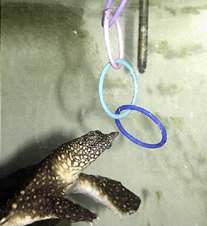Summer has arrived, the days are long and we’re all commenting on how the sunshine brings a smile to people’s faces. Even the dogs in the park seem joyous now that the winter blues have faded into our memories.
This time of year often gets us out in nature because we don’t have to go out pre-armed with boots, hats, scarves and gloves. We can just go as we are; it’s so much easier.
There are many studies providing evidence that attention and working memory are critical coping resources for stress. They can be dramatically improved through nature exposure. We also know that mindfulness is a resource for coping because mindful attention can facilitate effective appraisal and cognitive flexibility for coping. Mindfulness practices also lower cortisol levels and reduce distress across various samples, including veterans with post-traumatic stress disorder (King et al., 2016), cancer patients (Carlson et al., 2001) and children (Mendelson et al., 2010).
Prolonged mindfulness practice is associated with an increased ability to self-regulate automatic or habitual responses to stressors. So, can you imagine how utterly mind-blowing and life-changing practising mindfulness in nature could be for you?

Nature exposure
Being in nature is positively associated with emotional and psychological well-being (Nisbet et al., 2011; Windhorst and Williams, 2015). That is the feeling of judging life positively and feeling good.
Being in nature is positively associated with emotional and psychological well-being
Even indirect exposure to nature, such as looking out of a window onto a park, is positively associated with well-being (Kaplan, 2001). How often do you check out the view the first time you enter your hotel room?
Being in nature promotes our personal well-being through two pathways which you may find yourself becoming aware of next time you’re in nature.
Directed attention pathway
The first pathway is directed attention, which means that we’re purposely focusing on the nature around us. Like meditation, it takes effort, and we can become fatigued until we’re more practised at this.
Involuntary attention pathway
Second is involuntary attention, which involves intrinsic easy-going interest in the environment and requires little effort at all.
What does this mean?
Here’s the great thing: spending time having this easy-going intrinsic interest actually improves our ability to have focused attention (Ohly et al., 2016). Not only that, but it also improves our working memory (Berman et al., 2008), executive functioning (Schutte et al., 2015) and self-regulation (Kaplan and Berman, 2010).
I don’t know about you, but when I’m having a full-on day at work in the hospital, I need focused attention, good memory, high functioning and self-regulation all running at full throttle. Here’s where mindfulness alongside nature can come in handy.
Mindfulness
We already know that mindfulness is associated with well-being in so many ways: reduced stress, a more positive state of mind, tolerance of pain, better quality sleep and reduction in depressive symptoms (Morone et al., 2008).
Mindfulness is associated with well-being in so many ways: reduced stress, a more positive state of mind, tolerance of pain, better quality sleep and reduction in depressive symptoms
John Kabat-Zinn defines mindfulness as “paying attention, on purpose, to the present moment non-judgmentally”.
What this means is that we actively focus on the present moment without straying into the past or the future. We see our emotions with curious eyes without judging them as right or wrong or, in fact, as anything. We just feel them and accept that they are present.
Mindfulness and connection with nature each, separately, have been shown to cultivate good attention and to restore attention which has waned, which is essential for us to manage daily activities and our work effectively (Kaplan, 1995).
Stress management in the veterinary industry is something I get asked a lot about. Many of us are under an enormous amount of stress and we see it as a normal part of the job. Sometimes, we like stress as a driver of performance, like healthy stress with the pleasant adrenaline high that comes with an urgent case or a large caseload. When stress becomes an unhealthy way of being, it’s because it’s depleting our personal resources at a rate greater than which we can replenish those resources.

Healthily dealing with stress or adrenaline highs is called coping; it involves the appraisal of stressors using our internal non-judgemental attributes, often together with external resources, such as going outside for a walk, a run or a breather.
Being in nature has a stress-buffering effect on personal well-being and is a very valuable external coping resource (Chawla et al., 2014).
Furthermore, being outdoors in nature improves our ability to concentrate and our working memory (Kaplan and Berman, 2010), which are vitally important for effective appraisal and development of our coping mechanisms and strategies.
Do you see the circle?
Kaplan and Berman (2010) ran an interesting study comparing people who had been on an urban walk with people who had been on a nature walk after a recent stressor. Those who had been on the nature walk significantly improved in working memory and were better able to reflect on the stressor and cope healthily with it compared to their urban walking counterparts.
Another really interesting study (Kuo, 2001) found that public housing residents with a window view of green trees and green areas were better able to manage life’s regular stressors compared with those who had a view over more urban areas or a barren view.
So, with all the evidence, we simply cannot afford to let the opportunity to sit outdoors meditating for any length of time (even one minute) pass us by.
Take this mindfulness with nature practice into the autumn and winter months with a blanket and a mug of hot tea, and the proof is here that you will become more mentally well than you ever thought possible.











